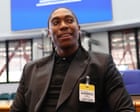
Recent global events have highlighted the progress and continued challenges in the realm of human rights and equality. These developments, spanning from sports and literature to legal systems and government protocols, underscore a collective movement towards inclusivity and justice.
In a landmark decision, the European Court of Human Rights ruled in favor of South African athlete Caster Semenya. The court recognized that Semenya, an exceptional runner and two-time Olympic gold medalist, was denied a fair trial in her challenge against rules that required her to lower her natural testosterone levels to compete in women’s events. This decision marks a significant victory for athlete rights and reinforces the call for fairness and dignity in sports. Semenya’s case has been a focal point for discussions on gender, biology, and competition, urging athletic bodies to reconsider how they approach and implement regulations on athletes with varying biological attributes.
Meanwhile, in the realm of public health and human rights, UNAids has raised concerns about the increasing criminalization of high-risk HIV groups. The organization warns that recent legal trends in various countries pose a threat to the progress made in battling the AIDS epidemic. Restrictions on LGBTQ+ rights and a pause in U.S. funding play a significant role in this increased criminalization, which could potentially reverse decades of hard-won advancements. Such developments highlight the critical need for protective laws and policies that support rather than hinder public health initiatives.
On a more positive note, Brazil has witnessed a historic change in its literary circles with the election of Ana Maria Gonçalves to the Brazilian Academy of Letters. Gonçalves is celebrated as the first Black woman to occupy a seat in this prestigious institution, long dominated by white men. Her election is being hailed as a momentous step towards diversification and represents broader societal shifts towards inclusivity and recognition of diverse voices. Her works have inspired many, and her presence in the academy is a source of inspiration for aspiring writers, especially those from underrepresented communities.
The evolution of formal address in Bangladesh’s government also reflects progressive changes. The caretaker government led by Nobel Peace Prize laureate Muhammad Yunus has ended the protocol of addressing female officials as “sir,” a practice inherited from the previous administration. This update signifies an embrace of gender respect and equality, reflecting broader societal shifts towards dismantling outdated norms that no longer align with contemporary values and gender inclusivity.
In the political arena, U.K. MPs and candidates have expressed concerns about the rising levels of intimidation and harassment, which are deterring young people from political engagement. Minister for Democracy Rushanara Ali has acknowledged these ‘industrial’ levels of abuse, prompting the government to propose stricter penalties for perpetrators. This situation underscores the need for ensuring safe, respectful environments for political discourse and participation, and highlights the importance of retaining the civic rights to partake in democratic processes without fear.
Lastly, Iranian filmmaker Nader Saeivar is garnering attention with his latest film, shot clandestinely in Tehran amidst intensified regional conflicts. His work, set to be released shortly, bespeaks his commitment to highlighting issues faced by Iranian women and the societal challenges they endure. Saeivar’s films offer a lens into the struggles and resilience of individuals under oppressive regimes, fostering a global conversation on women’s rights and freedoms.
These stories, while diverse in context, underscore a universal truth: the journey towards rights and equality is complex and layered. Progress has been made, yet challenges remain. The narratives unfolding across different domains – sports, health, politics, literature, and film – collectively paint a picture of hope and determination, with individuals and communities striving towards a more inclusive and just world.
Source: {link}
